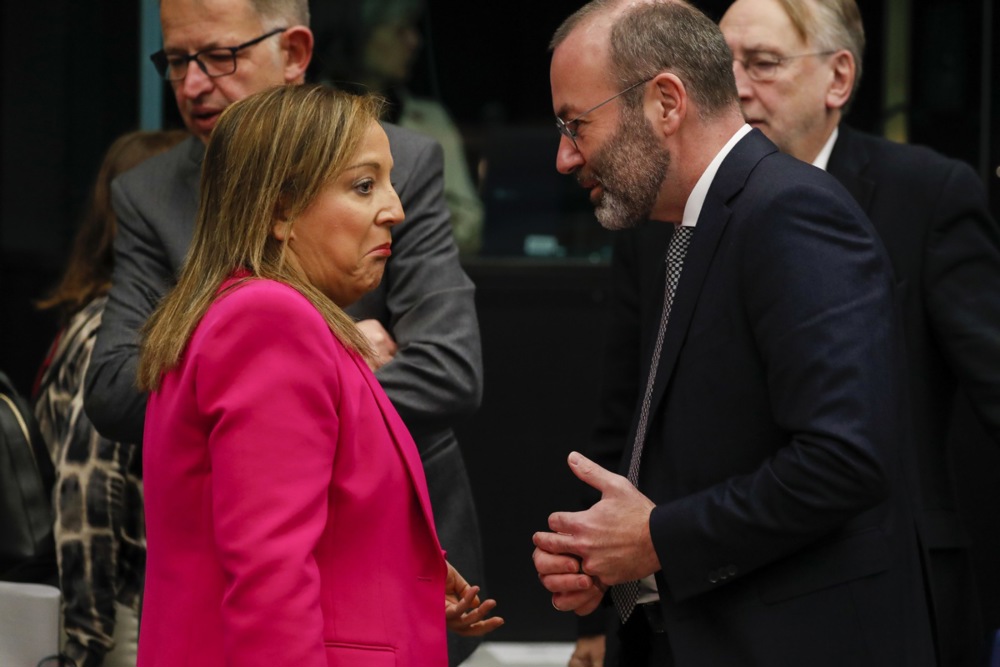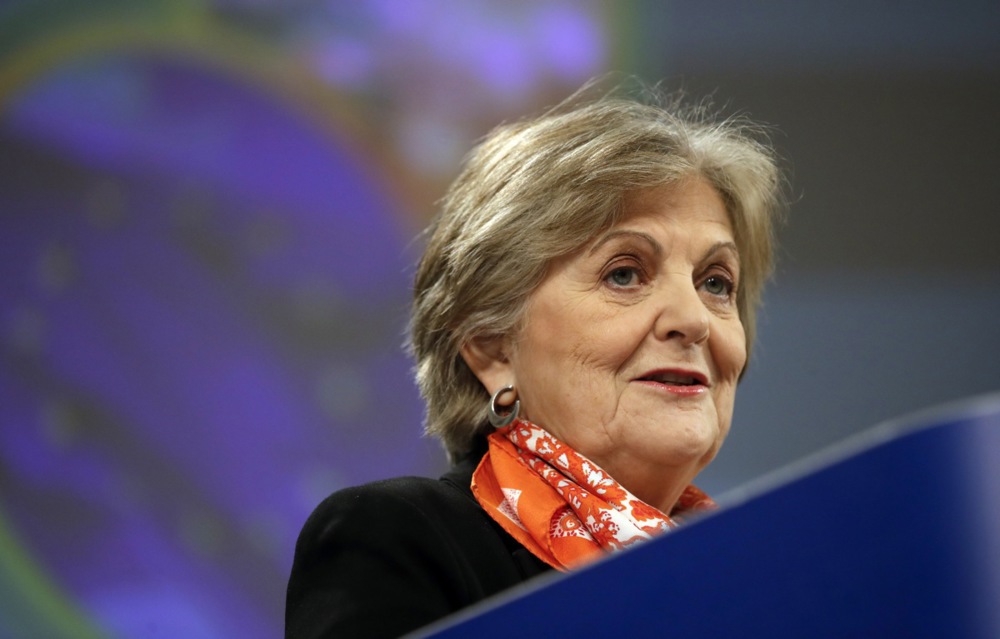The European People’s Party (EPP) in the European Parliament has proposed an agreement with the Social Democratic (S&D) and Liberal Renew groups to unblock the approval of European Commission President Ursula von der Leyen’s new executive, after having recently threatened not to support the Spanish Socialist candidate.
Announced on November 20, the strategy avoids a secret ballot and seeks the joint approval of the six vice presidents, including Italy’s Raffaele Fitto (candidate of Italian Prime Minister Georgia Meloni) and Spanish Minister Teresa Ribera.
The EPP’s position clashes with that of the Spanish People’s Party (PP). Alberto Núñez Feijóo, party leader, said that Ribera was “a bad candidate and a bad appointment” for the EC, revealing a likely division within the EPP.
The leaders of the three main parliamentary groups — Manfred Weber (EPP), Iratxe García (S&D) and Valérie Hayer (Renew) — are seeking to finalise a joint declaration that prioritises their agenda in the face of the rise of Conservative groups that could threaten their current domination.
Although the co-ordinators of the parliamentary committees could resume candidate evaluations as early as later on November 20, some have suggested that “technical adjustments” could delay the process until the following day.
In addition to Ribera’s case, the package includes Hungary’s Olivér Varhelyi, who will face a reconfiguration of competencies. Abortion-related policies will be removed from his portfolio to facilitate its approval. In official terminology, it was described as “reproductive health” or “sexual health”.
If the agreement is maintained, the European Parliament will vote in full on the new von der Leyen executive on November 27 in Strasbourg.
As the group acknowledged, this scenario was a setback for the PP MEPs. The Spanish delegation’s frustration was evident after the Conservative group’s meeting, where support for Ribera and the rest of the package of vice presidents was imposed.

The EPP ruled out the possibility of putting Ribera on a secret ballot in committees with an option to reject her.
The PP had demanded that Ribera be held accountable in Spain’s Congress of Deputies for her actions in the wake of the devastating flooding of late October that caused more than 220 deaths, mostly in Valencia. It had also requested that the minister commit to resign if her performance led to legal action.
The EPP chose to water down these demands, citing the difficulty of attributing responsibility at this early stage. In the words of the group, these issues “should be resolved in the Spanish judicial sphere”.
The S&D group in the European Parliament has offered to support Giorgia Meloni’s candidate, Raffaele Fitto, as Commissioner in exchange for EPP backing Teresa Ribera as Vice-President for Clean Transition. https://t.co/894SA4lcQO
— Brussels Signal (@brusselssignal) November 19, 2024





